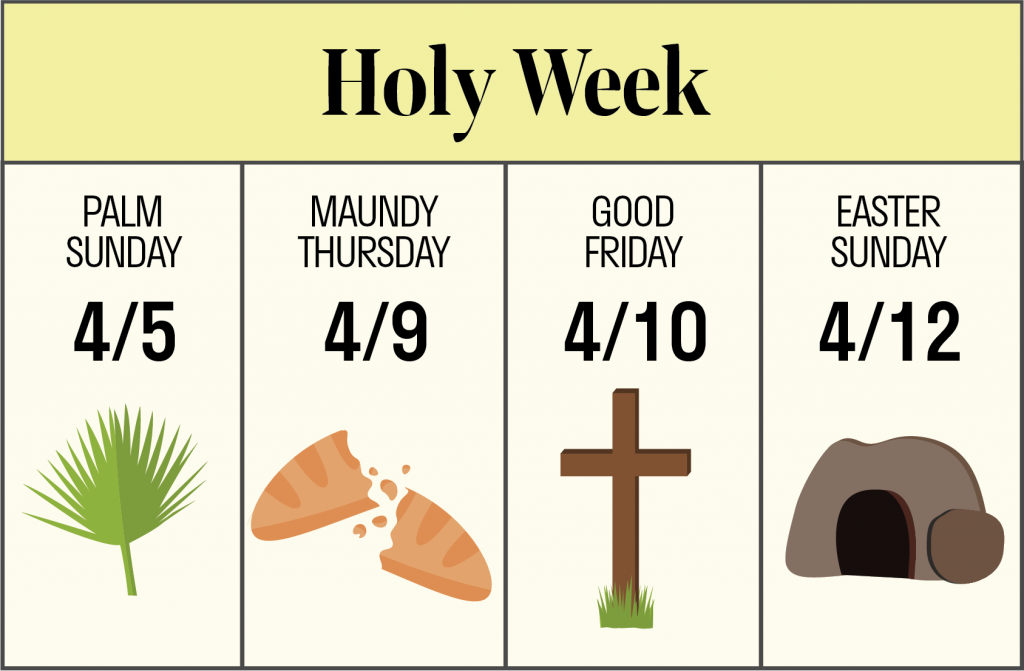As Easter approaches, Christians around the world prepare to commemorate the most pivotal event in the Christian faith – the resurrection of Jesus Christ. However, the days leading up to Easter, known as Holy Week, hold immense significance and are a crucial part of the Easter story. In this article, we will delve into the biblical events that unfold during Holy Week, exploring the profound meaning and importance of this period.
Introduction to Holy Week
Holy Week, also known as Passion Week, is the week preceding Easter and is a time of reflection, prayer, and contemplation for Christians. It begins on Palm Sunday and concludes on Holy Saturday, the day before Easter Sunday. This period is a solemn and sacred time, as it commemorates the final days of Jesus' life, his crucifixion, and ultimately, his resurrection.
The Biblical Events of Holy Week
The biblical events of Holy Week are recorded in the four Gospels – Matthew, Mark, Luke, and John. Here's an overview of the key events that take place during this significant week:
Palm Sunday: Jesus' triumphant entry into Jerusalem, where he is greeted with palm branches and hailed as the Messiah (Matthew 21:1-11, Mark 11:1-11, Luke 19:28-44, John 12:12-19).
Monday of Holy Week: Jesus cleanses the temple, driving out the money changers and merchants (Matthew 21:12-17, Mark 11:15-19, Luke 19:45-48).
Tuesday of Holy Week: Jesus teaches in the temple, sharing parables and responding to questions from the Pharisees and Sadducees (Matthew 21:18-22:46, Mark 11:20-12:44, Luke 20:1-21:4).
Wednesday of Holy Week: Jesus is anointed with perfume by a woman in Bethany, preparing him for his burial (Matthew 26:6-13, Mark 14:3-9, Luke 7:36-50).
Maundy Thursday: Jesus shares the Last Supper with his disciples, instituting the Lord's Supper and commanding them to love one another (Matthew 26:26-35, Mark 14:17-25, Luke 22:7-20).
Good Friday: Jesus is crucified on the cross, sacrificing himself for the sins of humanity (Matthew 27:32-56, Mark 15:22-38, Luke 23:26-49, John 19:16-30).
Holy Saturday: Jesus' body lies in the tomb, and his disciples mourn his death (Matthew 27:57-61, Mark 15:42-47, Luke 23:50-56, John 19:38-42).
The Significance of Holy Week
Holy Week is a time of great spiritual significance, as it reminds us of the immense sacrifice Jesus made for our salvation. By reflecting on the events of Holy Week, we can deepen our understanding of God's love and grace. As we journey through the final days of Jesus' life, we are reminded of the importance of forgiveness, compassion, and redemption.
In conclusion, Holy Week is a vital part of the Easter story, and understanding its significance can enrich our faith and spiritual growth. As we approach Easter, let us take time to reflect on the biblical events of Holy Week, and may we be transformed by the power of Jesus' love and sacrifice.
Share your thoughts and reflections on Holy Week in the comments below. How do you observe this significant period in the Christian calendar?








